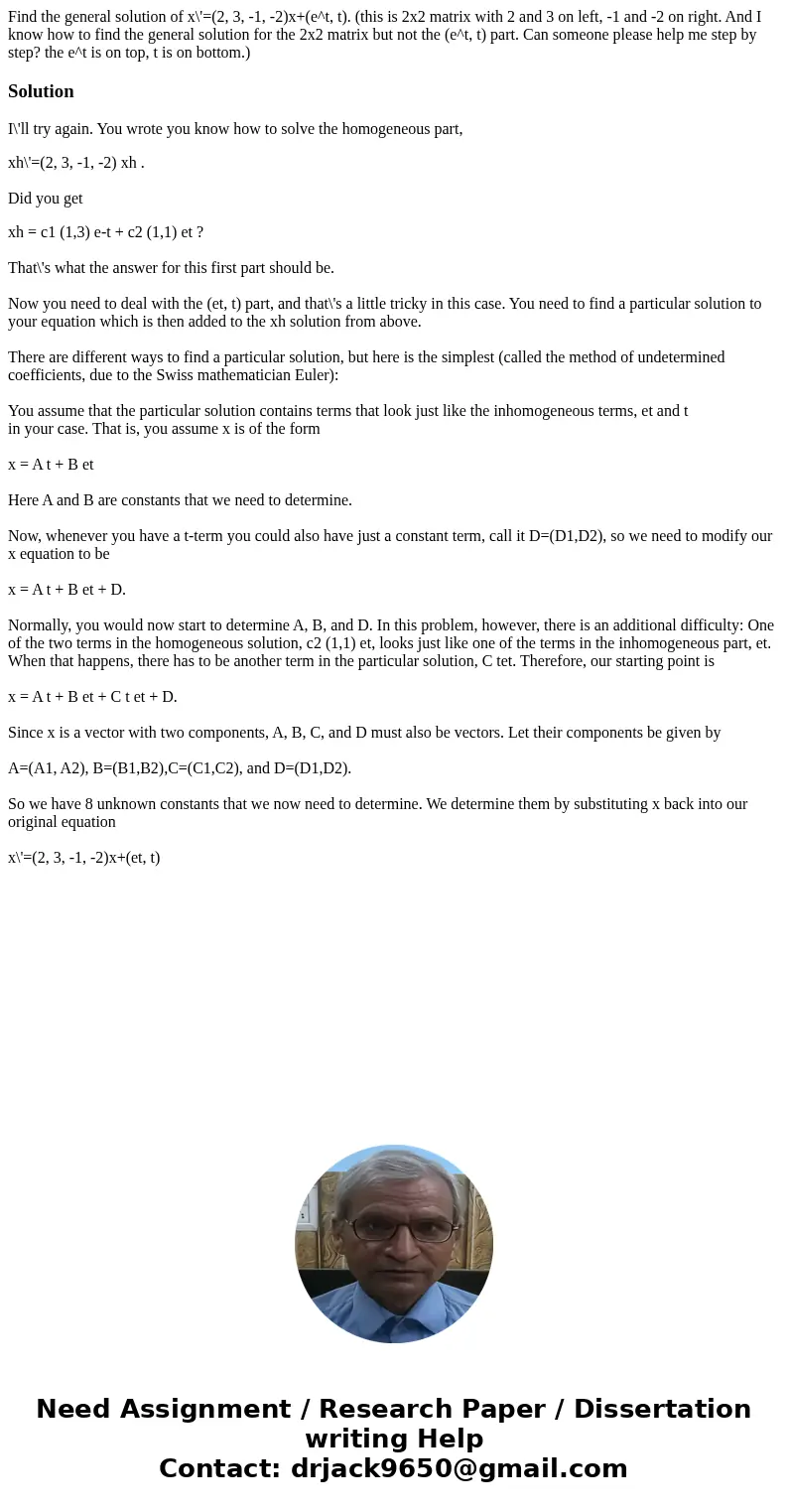Find the general solution of x2 3 1 2xet t this is 2x2 matri
Find the general solution of x\'=(2, 3, -1, -2)x+(e^t, t). (this is 2x2 matrix with 2 and 3 on left, -1 and -2 on right. And I know how to find the general solution for the 2x2 matrix but not the (e^t, t) part. Can someone please help me step by step? the e^t is on top, t is on bottom.)
Solution
I\'ll try again. You wrote you know how to solve the homogeneous part,
xh\'=(2, 3, -1, -2) xh .
Did you get
xh = c1 (1,3) e-t + c2 (1,1) et ?
That\'s what the answer for this first part should be.
Now you need to deal with the (et, t) part, and that\'s a little tricky in this case. You need to find a particular solution to your equation which is then added to the xh solution from above.
There are different ways to find a particular solution, but here is the simplest (called the method of undetermined coefficients, due to the Swiss mathematician Euler):
You assume that the particular solution contains terms that look just like the inhomogeneous terms, et and t
in your case. That is, you assume x is of the form
x = A t + B et
Here A and B are constants that we need to determine.
Now, whenever you have a t-term you could also have just a constant term, call it D=(D1,D2), so we need to modify our x equation to be
x = A t + B et + D.
Normally, you would now start to determine A, B, and D. In this problem, however, there is an additional difficulty: One of the two terms in the homogeneous solution, c2 (1,1) et, looks just like one of the terms in the inhomogeneous part, et. When that happens, there has to be another term in the particular solution, C tet. Therefore, our starting point is
x = A t + B et + C t et + D.
Since x is a vector with two components, A, B, C, and D must also be vectors. Let their components be given by
A=(A1, A2), B=(B1,B2),C=(C1,C2), and D=(D1,D2).
So we have 8 unknown constants that we now need to determine. We determine them by substituting x back into our original equation
x\'=(2, 3, -1, -2)x+(et, t)

 Homework Sourse
Homework Sourse